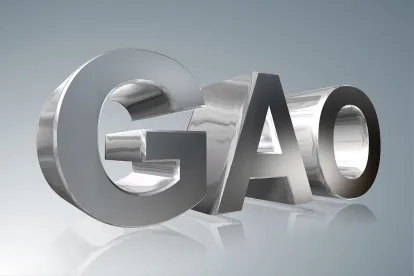In a recent decision, the Government Accountability Office (GAO) clarified its minimum pleading standard for bid protests. The decision was a bit unusual because, unlike the courts, the GAO rarely uses published decisions to address procedural issues. Nevertheless, the pleading standard described in the decision, which was prompted by a Congressional reporting mandate, provides useful clarification for protesters, intervenors, and agencies for future protests on bid protest pleading rules.
Background
As currently stated, the GAO’s Bid Protest Regulations require the dismissal of protest arguments “that lack a detailed statement of the legal and factual grounds of protest” or “that fail to clearly state legally sufficient grounds of protest” (4 C.F.R. § 21.5(f)). The GAO has consistently interpreted this rule to mean that “protesters will provide, at a minimum, either allegations or evidence sufficient, if uncontradicted, to establish the likelihood that the protester will prevail in its claim of improper agency action” (see, e.g., Mission Analytics, LLC, B-422841.3, Dec 11, 2024, 2024 CPD ¶ 305 at 3).
In late 2024, however, Congress passed the Servicemember Quality of Life Improvement and National Defense Authorization Act for Fiscal Year 2025, Pub. L. No. 118-159 (Dec. 23, 2024) (FY2025 NDAA), Section 885 of which directed the Comptroller General, in coordination with the Secretary of Defense, to submit to Congressional committees a report that included a process for enhanced pleading standards for GAO bid protests for which an interested party seeks access to administrative records of the Department of Defense.
On July 14, 2025, the GAO responded to the FY2025 NDAA requirement in a letter in which the GAO proposed “to clarify and enhance [its] pleading standard to require that protesters must provide, at a minimum, credible allegations that are supported by evidence and are sufficient, if uncontradicted, to establish the likelihood of the protester’s claim of improper agency action.” The GAO also stated that the clarified standard would apply to all protests, not just those of the Defense Department.
Warfighter Focused Logistics Protest
Against that policy backdrop, on May 19, 2025, Warfighter Focused Logistics, Inc., filed a protest challenging a Defense Logistics Agency procurement of vehicle tire cross chains. One protest argument was that the awardee had misrepresented the inventory stock that it had available at the time quotes were due. The GAO dismissed this allegation as lacking sufficient information to support the contention that the awardee had misrepresented its available supply. The GAO determined that the protester had provided no evidence that the awardee could not obtain the tire chains through ordinary supply channels. In dismissing this protest ground as speculative and factually and legally insufficient, the GAO articulated the new pleading standard to clarify that “allegations standing alone” are not sufficient to meet its pleading standards. Instead, now and for future decisions, “protesters must provide, at a minimum, credible allegations that are supported by evidence and are sufficient, if uncontradicted, to establish the likelihood of the protester’s claim of improper agency action.”
The GAO otherwise dismissed a separate protest ground for jurisdictional grounds and denied the remainder of the protest allegations on the merits.
Takeaways
The new pleading standard does not represent any groundbreaking shift in the GAO’s pleading practice because the prior standard was generally workable for most practitioners and protesters. Nevertheless, the GAO’s revised standard provides useful clarification and may result in more frequent dismissal of baseless protest grounds. Conversely, the standard may provide guidance on how to draft to avoid summary dismissal.





 />i
/>i


